|
There is a lot of talk about immunity and infection going around lately due to recent outbreaks of certain illnesses, so I am here to bring a message that promotes hope and resilience over fear and panic. We can take an active, rather than passive, role in our health which can not only make us feel empowered but also give us a sense of peace. During a time when so many are susceptible to disease, there is plenty we can do to help protect ourselves and boost our immune systems using natural, traditional remedies. We are in charge of our own health, no one else can do it for us. Certainly, a diet rich in whole foods that provides all of your micronutrient needs and plenty of antioxidants is a place to start. Including traditional foods like fresh, organic fruits and vegetables, eggs, meat and organ meats, raw dairy, healthy fats, bone broth, fish and shellfish (such as oysters) and properly-prepared nuts and seeds will go a long way in keeping your body resilient and having its nutrient needs met. Bumping up your intake of probiotic-rich foods such as sauerkraut, kim chi, yogurt, and kombucha can help build your body’s defenses through beneficial microbes. If you are concerned about improving your microbiome for better immune function, you could also add in a probiotic supplement, especially if your intake of fermented foods is not consistent. Chris Masterjohn, PhD, in his Guide for the Coronavirus, recommends supplemental zinc, garlic, and echinacea, with plenty of vitamin C and copper from foods, to promote resistance to this virus and the necessary immune support you may need right now. <This post was editied on 3/17 to include Chris' new recommendations.> Besides diet, a healthy immune system also needs plenty of sleep, healthy ways to cope with stress, adequate hydration, and as much time out in nature as possible. Diet and lifestyle factors cannot be overlooked when it comes to creating a robust immune system, and we must look to our ancestral principles for how to carry these out. Another tool that we can use, which our ancestors would have utilized to make them more immune to illness, would be herbal medicine. The traditional, or “folk,” remedies employed a vast number of wild herbs that held healing properties, and science is finally beginning to catch up with what traditional cultures knew: herbs contain active compounds that have real effects on the body. There are many herbs and formulas that have been shown to have anti-viral, anti-bacterial, and immune-boosting properties, and I have been loading up on these at our house lately, including my homemade Fire Cider (click the link to make yourself!). One of my favorite herbs to use during cold and flu season is elderberry. Studies are now showing that elderberry extract has anti-viral properties, and elderberry has been used as an immune remedy for ages. I have made a big batch of this recently, in order to keep our defenses up, and this is always a nice herbal ally to have on hand during cold and flu season. Elderberry can be taken as a tincture, tea, or capsule, but my favorite way to use elderberry in a medicinal way is by making a syrup. It tastes delicious, making it easy for the whole family to take, and other medicinal herbs can be added as you like. To make a syrup, you simply cook your dried herbs in water until the liquid has reduced by about half. Many recipes call for a 3:1 ratio of water to dried herb, but I have found a 4:1 ratio works better for me. Once cooked down, you will strain this concentrated liquid, known as a decoction, and add honey in an amount equal to your liquid. If you like your syrup a little less sweet, you can reduce the amount by a bit. The honey not only makes it taste sweet and wonderful, but also adds its own medicinal aspects, including antioxidants and throat-soothing properties. Be sure to use raw honey for this syrup, as only honey kept in its raw state has these qualities. Once made, you will need to keep this in the fridge to prevent spoilage, where it will keep for a few months. Feel free to add any immune-boosting herbs you like to your syrup; I have listed my favorite below in the recipe. Elderberry Immune Syrup Makes about 3 cups 3 ounces dried elderberries (about ¾ cup) 2-3” fresh ginger, chopped (or about 1 ounce of dried ginger root) 4 cinnamon sticks 6 cardamom pods, crushed 1-2 tsp whole cloves Other additions: dried echinacea root, thyme, orange peel, rose hips 20-24 ounces filtered water 1- 1 ½ cups raw honey Weigh out your herbs using a kitchen scale, measuring in ounces. Place in a small sauce pan. Multiply your weight of herbs by four, then use that number for the volume of water added to the herbs. Bring the water and herbs to a boil. Turn heat to the lowest heat possible and cover; let simmer for 20-30 minutes. Check regularly to prevent sticking or boiling over. You will know the decoction is ready when the liquid has reduced by about half. Strain out the herbs and measure out your liquid. Measure out your honey in a ½-1: 1 ratio to your liquid, depending on how sweet you like your syrup. Let cool slightly so the honey does get too heated, then whisk in your honey until dissolved. Transfer to a glass storage jar with a lid, then label with the name and date. Keep in the fridge for storage, where it will keep for 1-2 months. Take 1-2 Tbs as a dose, or as recommended by your own healthcare provider, hopefully one that is knowledgeable about herbs. As with any post on this blog, this is for informational purposes only and does not constitute medical advice. It is not intended to substitute the advice of your doctor or medical professional.
0 Comments
Leave a Reply. |
Brine & Broth
I am a gut health-focused nutritionist and online health coach based in Southwest Wisconsin. My recipes and philosophies center around traditional, nutrient-dense foods that support robust gut health. Archives
May 2022
Categories |
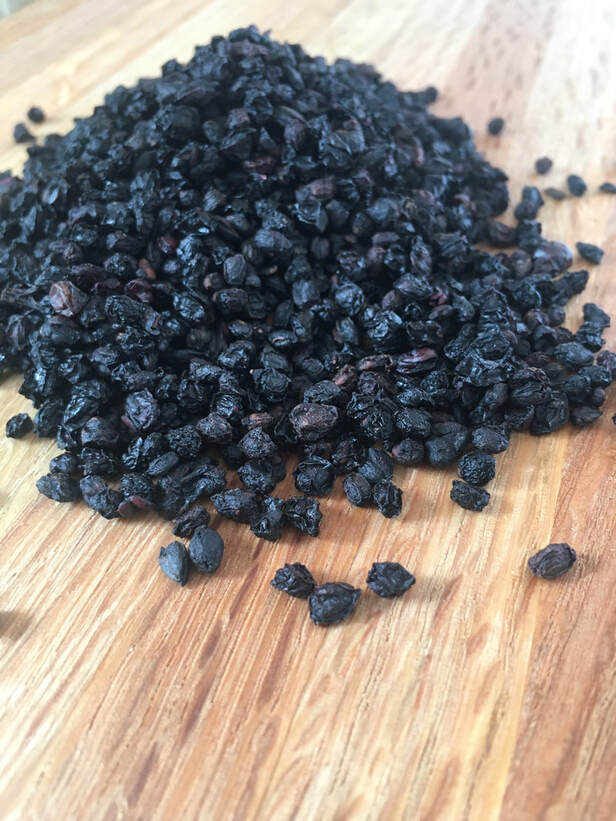
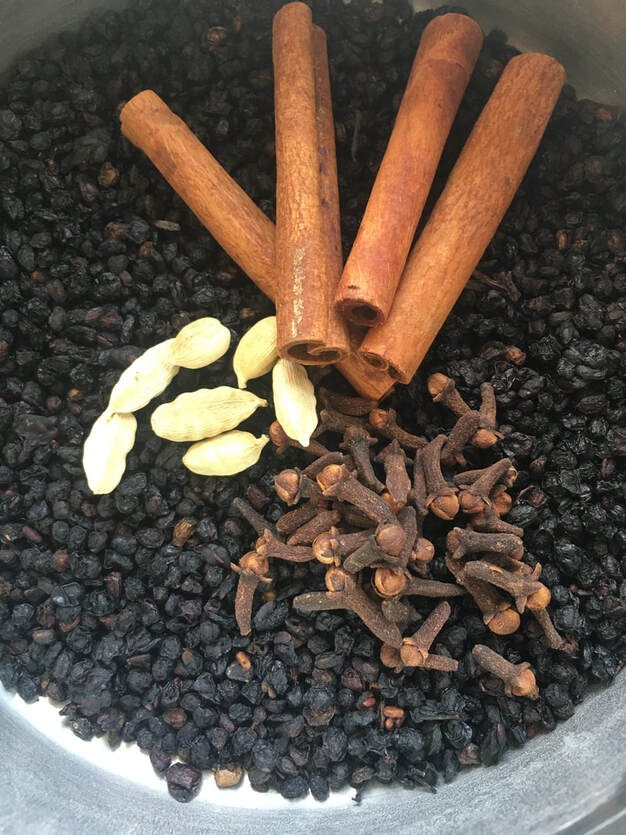
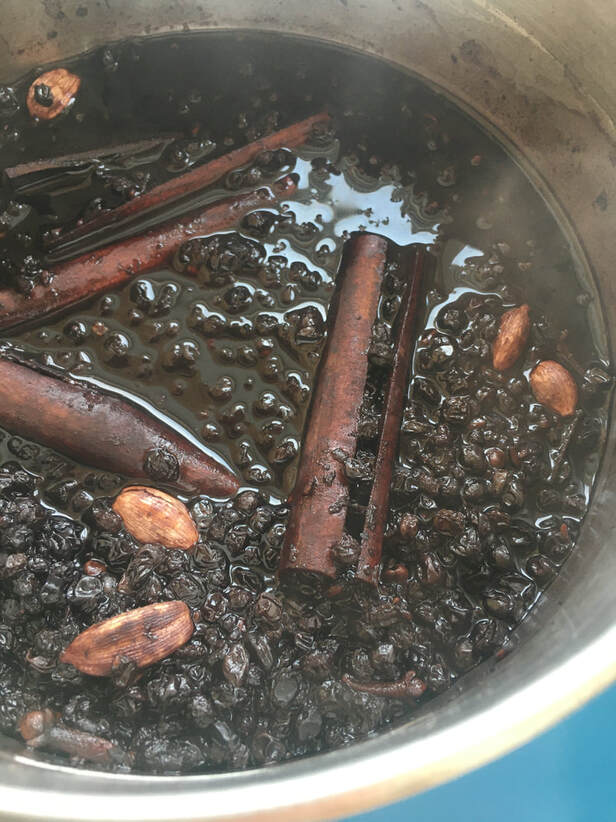
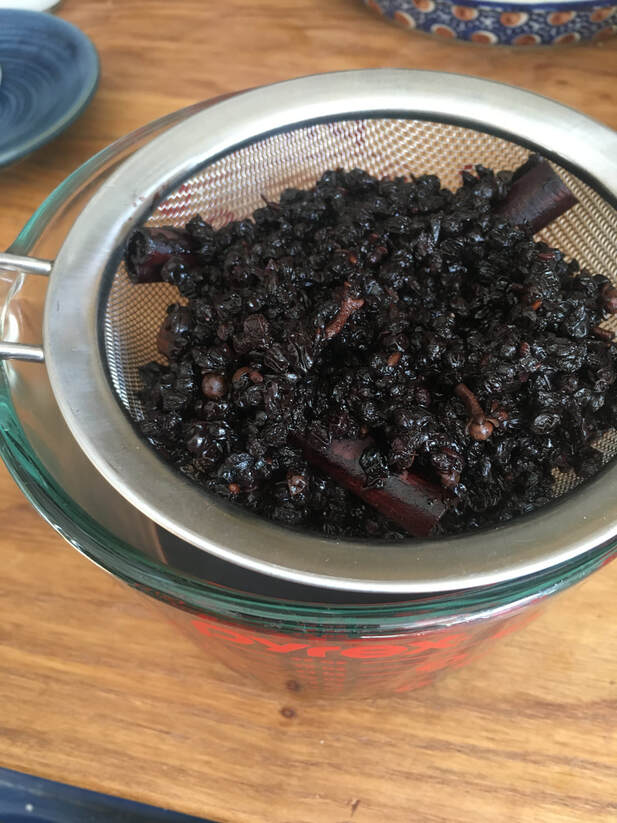
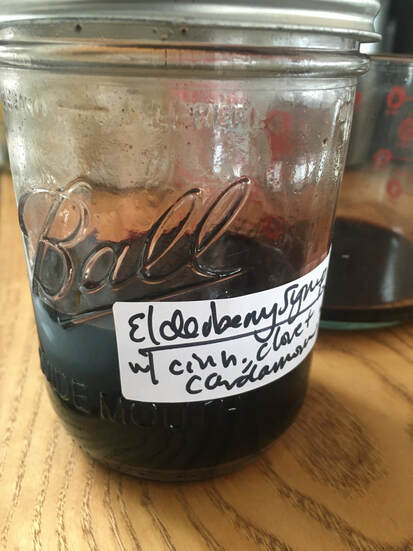

 RSS Feed
RSS Feed
